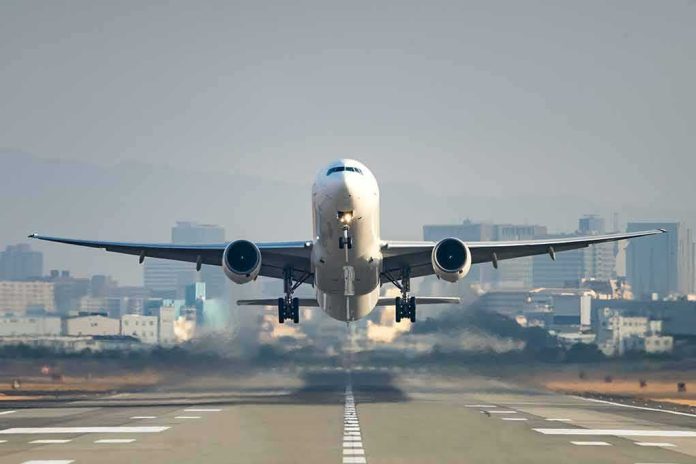
America’s skies and travelers face unprecedented disruption after coordinated cyberattacks struck major airlines this summer, exposing glaring vulnerabilities and igniting calls for stronger defenses against threats that could undermine national security and economic stability.
Story Snapshot
- Multiple major airlines in the U.S., Europe, and Australia were struck by cyberattacks in June–July 2025, causing major delays, cancellations, and data breaches.
- Authorities identified the “Scattered Spider” hacking group as the attacker, highlighting the aviation sector’s digital vulnerabilities.
- Millions of passengers suffered disruptions and potential data exposure, while experts warn future attacks could be even more severe.
- Calls are growing for urgent action to harden airline cybersecurity, defend critical infrastructure, and restore public trust.
Coordinated Cyberattacks Hit Major Airlines, Paralyzing Travel
Between June and July 2025, a series of sophisticated cyberattacks crippled major airlines and airport systems across North America, Europe, and Australia. Hawaiian Airlines, WestJet, Qantas Airways, and American Airlines all reported significant breaches or outages affecting both internal and customer-facing operations. The attacks coincided with the peak summer travel season, causing widespread delays, canceled flights, and confusion for millions of travelers relying on these airlines for business and family travel. Federal authorities, including the FBI, responded by launching urgent investigations and warning that the disruptions could continue if systems were not quickly restored.
Investigators quickly traced the attacks to the “Scattered Spider” hacking group, notorious for targeting large organizations through social engineering and exploiting weaknesses in third-party IT vendors. The group’s tactics included breaching vendor platforms that handled customer bookings and communication, dramatically expanding the impact beyond individual airlines. This allowed the hackers to not only disrupt flight operations but also access sensitive passenger data, with Qantas confirming that records for 5.7 million customers had been exposed in a single breach. The aviation industry’s increasing reliance on external vendors has now emerged as a critical point of vulnerability, raising alarm among both cybersecurity experts and government regulators.
Operational Impact and Threats to Critical Infrastructure
The immediate fallout from these cyberattacks included thousands of delayed or canceled flights, stranded travelers, and a surge in public frustration with airline reliability and digital security. American Airlines, for example, was forced to delay 21% and cancel 2% of its flights during a major system outage. While airlines have reassured the public that flight safety was not compromised, the operational chaos has eroded trust in digital infrastructure. Experts warn such incidents could open the door to even more severe attacks, targeting not just convenience but potentially the safety and stability of the nation’s critical infrastructure if left unchecked. The events have also spotlighted the consequences of globalism and the concentration of digital control in the hands of a few vendors, exposing American travelers and businesses to foreign and criminal threats.
Many affected airlines are now scrambling to recover systems and upgrade security, but the attacks have already triggered market losses, insurance claims, and a wave of reputational damage. Regulators in the U.S., Canada, Australia, and Europe are reviewing industry practices and considering stricter cybersecurity mandates. The FBI and Microsoft have both called for increased vigilance and new standards, emphasizing that the aviation sector is likely to remain a high-value target for months to come. For conservative Americans, these events serve as a stark reminder of the risks posed by overreliance on digital systems, lax oversight, and the erosion of national self-reliance in critical industries.
Calls for Stronger Defenses and Policy Reform
With millions affected and the threat of further disruptions looming, industry leaders, regulators, and cybersecurity professionals are demanding urgent reforms. Key recommendations include hardening systems against social engineering, scrutinizing third-party vendor contracts, and adopting best practices for digital resilience. The attacks have also revived debates about government overreach and the need to safeguard American sovereignty in the face of global threats. Lawmakers and watchdog groups argue that protecting the nation’s infrastructure must not come at the expense of privacy, gun rights, or constitutional freedoms. Instead, they call for common-sense reforms that reinforce the nation’s defenses without expanding government power or inviting more bureaucracy.
Looking ahead, the aviation industry faces a reckoning over its readiness to confront twenty-first-century threats. Conservative voices stress that the nation cannot afford to be complacent; the stakes include not only reliable travel but also the economic security and constitutional integrity of the United States. As recovery efforts continue, the pressure is mounting for industry and government to work together—firmly and transparently—to restore public trust and ensure that the skies remain safe, free, and open to all Americans.
Sources:
VisaVerge: Cyberattacks Hit Two Major North American Airlines
Breached.Company: Aviation Under Siege—The 2025 Airline and Airport Cyberattack Crisis














